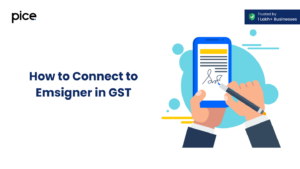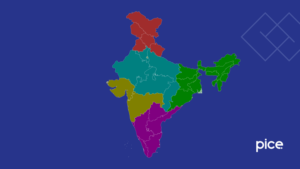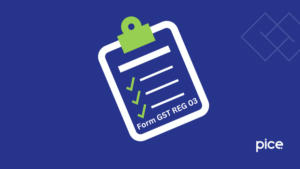GST Applicability on Free Samples & Supplies
- 1 Jul 25
- 15 mins

GST Applicability on Free Samples & Supplies
- When Does a Product Qualify as a Free Sample?
- Overview of Availing Input Tax Credit on Free Supplies
- Criteria and Conditions for a Product to Qualify as a Free Sample
- Which Activities Are Treated as Supply Even If Made Without Consideration?
- How to Disclose Free Samples Supplies in the Returns?
- Prevention of Common Issues with Free Samples in GST Returns
- Conclusion
Key Takeaways
- Free samples without consideration are generally not treated as taxable supplies under GST, but ITC must be reversed.
- Schedule I of the CGST Act outlines exceptions where transactions without payment still qualify as supplies and require GST compliance.
- FOC (Free-of-Cost) invoices must be carefully reported in GST returns, especially when ITC was claimed on goods distributed as samples.
- Misclassification, valuation errors, and ITC reversal failures are common mistakes businesses must avoid when handling free samples in GST filings.
- Proper disclosure of free samples ensures legal compliance, prevents misuse, and builds customer trust through transparency.
Under the GST (Goods and Services Tax) regime, even non-monetary transactions, like the provisions of free samples are taxable supplies. A majority of businesses often distribute free samples as gifts or promotional items to raise awareness amongst consumers without any consideration. Such transactions need disclosure in the GST filings to ensure compliance.
By understanding the applicability of GST on free samples, businesses can ensure to avoid facing any penalties. Read on to learn all about the Free-of-Cost or FOC invoice in GST and its implications on free samples and supplies.
When Does a Product Qualify as a Free Sample?

A free sample refers to consumer products which are provided at no applicable cost. They are for promotional purposes primarily. The sample products enable the consumers to experience products prior to making a purchase. This is so that, at the time of purchase, consumers already know about the functionality and usability of the product, and can make informed decisions on the basis of that.
Offering these types of supplies pertaining to free samples is a very common marketing strategy across different industries, particularly in sectors like FMCG and pharmaceuticals.
Key Characteristics of Free Samples
Here is a list of some of the key characteristics of free samples:
- Marking and Packaging - These products do not have the MRP (Market Retail Price) printed on them. Sometimes, these no-cost supplies have labels of “Not For Sale”. This is what distinguishes them from other taxable supplies.
- No Exchange of Consideration (Payment) - The free samples are distributed without any kind of payment or consideration from the recipient.
Regulatory Considerations of CGST Act on Free Supplies
In India, the GST (Goods and Services Tax) addresses the treatment of free samples under these particular provisions:
- Schedule 1 of CGST Act, 2017
There are a few activities which have the category of “supply” even without any consideration. However, the distribution of free samples does not fall under such activities and the FOC invoice in GST needs inclusion in filings. This means that distributions do not automatically have a label as taxable supplies.
- Section 17(5)(h) of CGST Act, 2017
This section states that an Input Tax Credit (ITC) is not available for the disposed goods distributed in the form of free samples or gifts. Hence, businesses need to reverse ITC claims on free samples and distributed goods.
Overview of Availing Input Tax Credit on Free Supplies
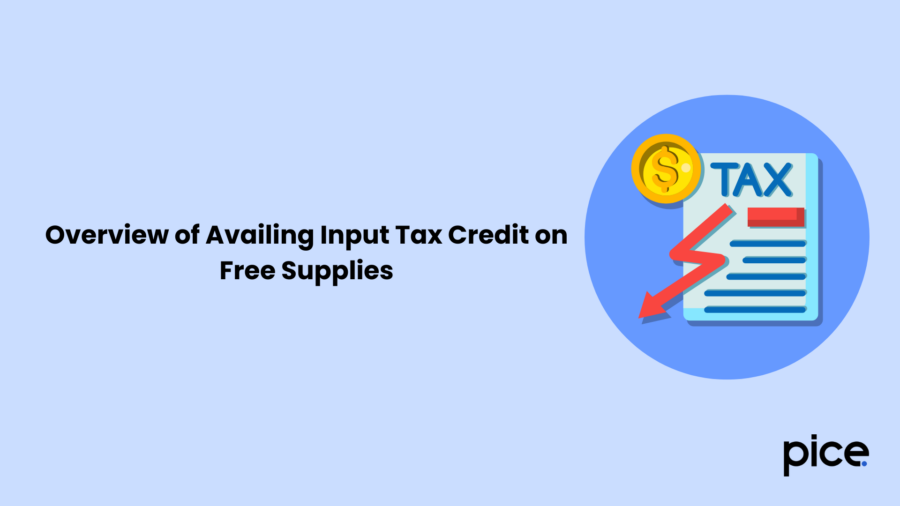
The nature of the transaction influences the application of credit on supplies and samples. Here is an overview of the taxability of free samples during their time of supply:
| Nature of Transaction | Outward Supply | Availment of Credit |
| Sample products marked as ‘Not for Sale’ or ‘Physician’s sample’ | No output tax is needed to be paid | Credit Reversal on cost |
| Sample products taken out of finished goods and then offered as samples | Output tax is to be paid on the sale price | Credit is available |
| Free supplies which are extra units of offered products | Out tax to be paid on sale price unless the packaging mechanism or billing is changed | Credit is available |
| Free supplies which is an extra quantity of the same unit | Tax on sale of unit itself | Credit is available |
Criteria and Conditions for a Product to Qualify as a Free Sample
There are a lot of set criteria and conditions which make a product qualify as a free sample. This is important for businesses to know as the products which do not meet these qualifications do not need filings in GST returns.
Here is a list of some criteria and conditions for products to be deemed as free samples:
- Free of Charge
The product needs to be given without any associated cost to a consumer. This means there are simply no associated handling and shipping fees as well.
- No Purchase is Required
Consumers do not have any obligations to purchase another product or service to get the sample.
- Trial-Size Quantity
The product is provided to consumers in a small portion and not in its full-size version. This indicates that the product is a free sample and is meant for sampling or testing.
- No Requirement of Subscriptions
There are no obligations on the part of consumers to commit to a subscription, purchase or any kind of follow-up action.
- Promotional Intent
The main purpose of selling the product is to increase its awareness and encourage purchases from potential consumers.
- Labelled as a Sample
The product is generally labelled as a “Sample”. These products have an association with promotional and branding material. They also sometimes have the label of “Not for Sale”. These products are mini versions of the original products.
Which Activities Are Treated as Supply Even If Made Without Consideration?

According to the GST (Goods and Services Tax) regime in India, the term “supply” plays a major role in tax implication on FOC supply. Generally, the supply of a single product involves transactions where the services and goods exchange take place for a consideration (payment).
However, according to the CGST Act 2017, there are certain transactions that are recognized as ‘supply’ even when no payment is involved and for which an FOC invoice in GST submission is required. Hence, it is important to understand such GST implications. Here is a list of some primary activities which are ‘supply’ even without a consideration:
- Disposal or Permanent Transfer of Business Assets
When a business permanently disposes or transfers assets but has availed input tax credit rules on those assets, the transfer gets labelled as a supply and an FOC invoice in GST applies. Even if no amount or payment (consideration) is received for it. This rule has broader implications and makes sure that people do not misuse the benefits that they get on ITC and escape their tax liability.
Example: If a company purchases machinery and then claims ITC on the paid GST. Later on, they donate the machinery to a charitable trust without any consideration. This will then be considered as a supply under GST rules and taxed accordingly. This is because the ITC claim was done on the concerned asset before.
- Supply Between Related Persons and Distinct Persons
Supplies made between distinct and related persons have a consideration of ‘supply’ even when there is no monetary exchange. This is when the transaction is in the course of a business. Now who are the related persons in this instance? Here are a few categories of people who qualify as related persons - family members, employees or employers, entities with influence, companies with common directors or control.
Example: A parent company in Kolkata transfers their goods to a subsidiary in Delhi for further distribution. Even if there is no consideration made this will be treated as a taxable supply according to GST rules.
- Supply of Goods Between Agent and Principal
Transactions which are made between an agent and a principal are deemed as a supply. This applies even when there is no payment (consideration). It is done to ensure that the agents handle goods on behalf of the principal and they are brought under the tax net.
Example: Suppose a manufacturer sells their goods to an agent with the intention for the latter to sell on the manufacturer’s behalf. In this instance, no sale has occurred and no kind of consideration has been exchanged. Even then this will be considered a taxable supply under GST rules.
- Import of Goods by a Taxable Person from a Related Person
When a taxable person in India does import of services from any related person or their own establishment located outside the territory of India, it is treated as supply. Even if no consideration is made, then also it will get treated as a supply.
Example: An Indian company receives IT support from their parent company which is located in the U.S. without any kind of charges raised. Since this kind of service supports business operations in India, it will be termed as a supply. Furthermore, it will be subject to a reverse charge mechanism under the GST Act.
How to Disclose Free Samples Supplies in the Returns?
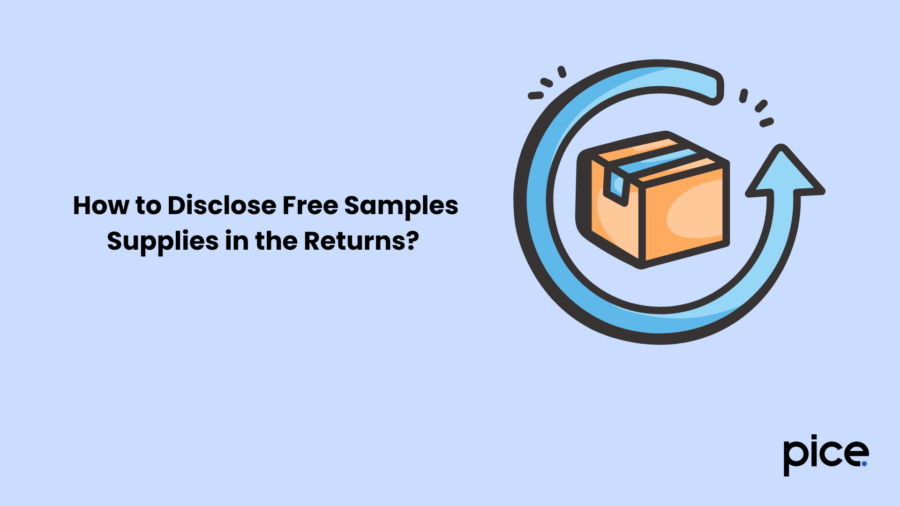
According to the GST regime in India, businesses frequently distribute free samples of their goods with promotional intent. While these samples are not really sold for their price, they still involve goods supply. However, the tax treatment and return filing for such transactions are a bit complicated in nature.
Here are a few concepts of such free samples and how they should be disclosed in GST returns:
- When Not Considered as Outward Supplies
Since free samples do not qualify as supplies, there is no need to report them as outward supplies in GST returns. However, if the input tax credit was already claimed, the related credit should be shown in Table 4 of Form GSTR-3B as either Ineligible ITC under Section 17(5) or reversed under the “Others” category.
- When Considered as Outward Supplies
Free samples are considered outward supplies and must be reported as taxable B2C sales in Table 4 of Form GSTR-3B. Since free supplies neither require credit reversal nor qualify as additional supplies, no special disclosure is needed in returns. However, if you opt to pay output tax on these, you should issue a B2C invoice and report the same in both Form GSTR-3B and Form GSTR-1.
Reasons for Disclosing Free Samples In Returns
Here are a few reasons why disclosing free samples in returns is crucial:
- Accuracy in Reporting of Finances
When the customers return items, including free samples, it becomes necessary that the returns are accurately recorded in a company’s finances. A mismanagement of such activity of sale where customers return items can result in penalties. This can lead to a company facing audit or regulatory issues.
- Maintenance of Legal Compliance
There are some jurisdictions which have strict laws that surround the return of free samples. For example, the return of free promotional samples might not be eligible for a refund or may need to be treated in a different way during the return process. By understanding such financial implications and adhering to such laws can help prevent any complications.
- Prevention of Abuse of Free Samples
Without any set proper and clear disclosure, the customers might send back the free and promotional items to claim refunds or credit. Hence, it is important for a company to have proper set policies on returns of their free samples and regular products to help prevent any kind of abuse.
- Generating Customer Trust and Satisfaction
A transparent disclosure of free samples during the process also builds trust with the customers. If the customers are aware of how free sample handling takes place then they will not feel misled or confused when they need to return an item.
Prevention of Common Issues with Free Samples in GST Returns
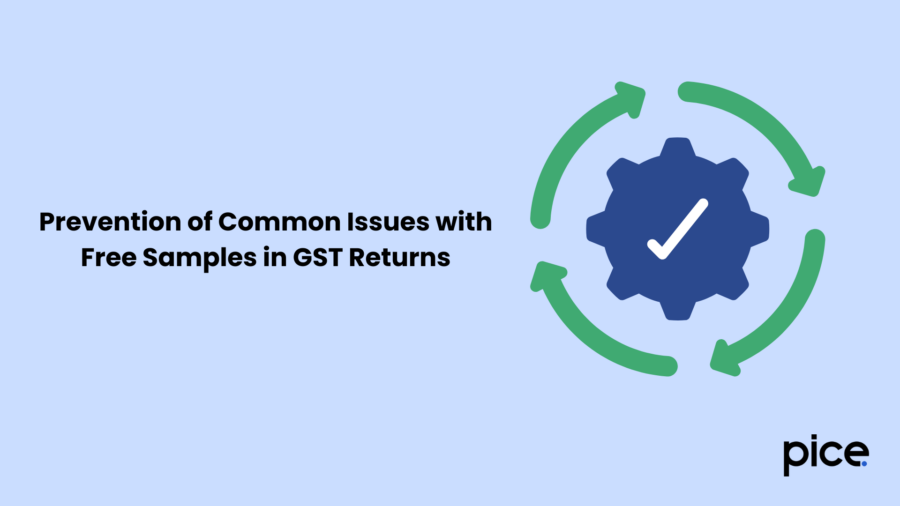
When disclosing free samples in the GST returns, businesses frequently encounter a lot of different challenges. Here are a few common issues and ways to prevent them:
- Incorrect Valuation of Free Samples
An incorrect valuation of free samples occurs when businesses fail to account for the correct cost of goods and services given away. This leads to discrepancies in liabilities of tax. Prevention of this will ensure a correct procurement or manufacturing cost to determine the value of the transaction for GST purposes. Furthermore, a business should monitor and review the cost structures to ensure an accurate calculation.
- Failure of Reverse ITC (Input Tax Credit)
Businesses neglect to reverse the claimed ITC on services and goods for free samples. This results in an excess of claim of credit and also potential penalties. A reversal of ITC while filing form GSTR-3B is necessary if goods and services are free samples. Businesses also need to keep a thorough track of used goods and services as free samples to avoid overlooking an ITC reversal.
- Misclassification of Free Samples
It is possible for samples to be misclassified as gifts or promotional items in GST returns, which can lead to improper tax treatment. A business can make sure that free samples are classified in a correct manner under applicable SAC and HSN codes. In addition, a business can actively maintain a clear distinction between promotional items and free samples to avoid any confusion in tax filing.
- Not Accounting for Payable GST on Free Samples
There are some businesses which assume that no GST is applicable on free samples because they apply without any consideration. This is not true and leads to incorrect tax filings. Businesses need to remember that free samples have a treatment of a taxable supply under GST and need to include so at an applicable rate. You need to calculate payable GST on the cost of goods and services and then report it in relevant sections of GSTR-3B.
- Non-Disclosure in GST Returns
If there’s an incorrect report of free samples from GSTR-1 or GSTR-3B, it would result in an incomplete and inaccurate return. Hence, it is necessary to regularly conduct a review of details on free sample transactions to ensure that they are there in the outward supply section of GSTR-1. Furthermore, it is a business’s requirement to ensure that no free sample transactions are under exclusion.
- Inconsistent Reporting in Annual GST Returns
Inconsistencies between annual returns and quarterly returns can arise if the free samples are not reported in a proper manner throughout the year. Hence, there is a need for accurate reporting of free sample transactions in both GST-9 and quarterly returns to avoid any kind of rising discrepancies during the yearly filing process. Businesses need to be very careful of these mistakes and prevent them.
Conclusion
As you can tell, free samples and supplies are subject to GST under the current tax regime even though they do not have any consideration or payment. Businesses need to make sure that they are providing an accurate valuation as per FOC invoice in GST, correct reporting and reversal of ITC in their GST returns filing. By understanding such implications of GST on free samples, companies can make sure to avoid any errors in their tax filings and prevent from facing any penalties.
By maintaining transparency, companies can ensure adherence to the law and also help businesses build a reliable relationship with the law and tax authorities.
💡If you want to streamline your invoices and make payments via credit or debit card or UPI, consider using the PICE App. Explore the PICE App today and take your business to new heights.







